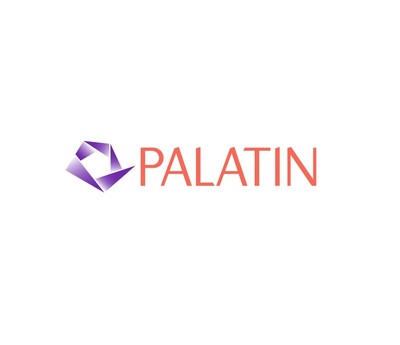Palatin Initiates Phase 2 Clinical Study of Bremelanotide for the Treatment of Obesity
Palatin Technologies (NYSE American: PTN) has initiated a Phase 2 clinical study to evaluate the safety and efficacy of bremelanotide, a melanocortin 4 receptor (MC4R) agonist, co-administered with tirzepatide (GLP-1/GIP) in obese patients. The trial aims to demonstrate the safety and improved efficacy of this combination in reducing body weight. The study, cleared by the FDA, involves 60 patients across five U.S. sites, with topline data expected by the end of 2024. Palatin believes this combination could lead to significant weight loss with improved tolerability, addressing the high discontinuation rates associated with current GLP-1 treatments. The company is also exploring additional studies for metabolic conditions and rare genetic diseases of obesity.
- Palatin has initiated a Phase 2 study for a novel obesity treatment.
- FDA clearance obtained for the Phase 2 study.
- Study targets combination treatment to improve efficacy and tolerability.
- Topline data expected by end of 2024, providing a clear timeline.
- Potential to address the high discontinuation rates of current GLP-1 treatments.
- Exploration of additional studies for multiple metabolic conditions indicates a broader business strategy.
- The Phase 2 study only involves 60 patients, which is a relatively small sample size.
- Results are not expected until the end of 2024, which may delay potential market entry.
- High dependency on the success of this study for future business prospects.
Insights
The initiation of a Phase 2 clinical study of bremelanotide for obesity treatment by Palatin Technologies is notable. Bremelanotide is a melanocortin 4 receptor (MC4R) agonist and its co-administration with tirzepatide, a GLP-1/GIP agonist, aims to enhance weight loss outcomes. The MC4R pathway is important in regulating appetite, energy expenditure and body weight. By targeting this pathway, bremelanotide could offer a new mechanism to address the limitations seen with current GLP-1 agonists, such as the plateau effect and side effects that lead to discontinuation by 67% of patients during the first year.
From a medical standpoint, combining these two treatments could potentially offer synergistic benefits, resulting in significant weight loss with improved tolerability. Given the rising prevalence of obesity and its associated health risks, a new effective treatment could have a substantial impact on patient outcomes and healthcare costs. This development is promising for addressing the unmet needs in obesity management.
For investors, Palatin Technologies’ initiation of a Phase 2 clinical study for bremelanotide in obesity treatment presents both opportunities and risks. The obesity market is large and expanding, with approximately 42% of U.S. adults affected. A successful new therapy could capture a significant market share. With top-line data expected by the end of 2024, investors should be prepared for potential stock volatility based on interim clinical results and regulatory updates.
From a financial perspective, the market's response will hinge on the trial’s success and subsequent steps towards FDA approval. Positive results and eventual commercialization could significantly boost Palatin's revenue streams and partnerships. However, investors need to be wary of the inherent risks in clinical trials, including possible delays or negative outcomes, which could adversely impact the stock.
- Co-Administration Phase 2 study of bremelanotide with tirzepatide (GLP-1) to provide key information for melanocortin treatments of obesity
- Topline data expected by end of calendar year 2024
- Additional studies under assessment for multiple metabolic conditions
"Although GLP-1 agonists are currently the standard of care treatment for obesity, data shows that
Dr. Spana added, "The MC4R pathway biology is clear and strong. It regulates hunger, caloric intake, energy expenditure and, consequently, body weight. Obesity has a tremendous adverse impact on patients, their families, and across the medical community. With significant experience and an extensive intellectual property portfolio in the design and development of MC4R agonists, Palatin continues to develop novel and highly selective MC4R agonists, including oral small molecule MC4R agonists, for the potential treatment of multiple metabolic indications, including certain rare genetic diseases of obesity."
The clinical study, titled "BMT-801: A Phase II, Randomized, Double-Blind, Placebo-Controlled, Clinical Study Investigating the Safety, Tolerability, and Effectiveness of the Co-Administration of Bremelanotide with Tirzepatide (GLP-1/GIP) for the Treatment of Obesity" has Food and Drug Administration clearance. The study is designed to enroll up to 60 patients who are actively on tirzepatide at five trial sites in
About Melanocortin 4 Receptor Agonists Effect on Obesity
Genetic analysis has identified the melanocortin 4 receptor (MC4R) of the paraventricular nucleus of the hypothalamus as playing a central role in appetite regulation. Genetic mutations that inhibit signaling in the MC4R pathway lead to hyperphagia, decreased energy expenditure and early-onset obesity; such mutations have been identified as the cause of several rare genetic obesity disorders. Agouti-related peptide is an endogenous antagonist of the MC4R that works with neuropeptide Y to stimulate appetite, whereas MC4R agonists such as α- and β-melanocyte-stimulating hormone promote satiety. Agonism of the MC4R therefore represents an attractive target for potential obesity treatments.
About Obesity
Obesity, which is defined as a body mass index (BMI) ≥30 kg/m2, represents a rising worldwide public health concern. Obesity is associated with an increased risk of overall mortality and serious health conditions, including high blood pressure, high cholesterol, type 2 diabetes, coronary heart disease, stroke and certain cancers. Health-related quality of life is significantly lower among adults with obesity, and obesity is associated with increased health care resource use and high economic burden. Safe and effective obesity treatments therefore remain a critical unmet need. The global increase in the prevalence of obesity is a public health issue that has severe cost implications to healthcare systems. In
About Palatin
Palatin is a biopharmaceutical company developing first-in-class medicines based on molecules that modulate the activity of the melanocortin receptor systems, with targeted, receptor-specific product candidates for the treatment of diseases with significant unmet medical need and commercial potential. Palatin's strategy is to develop products and then form marketing collaborations with industry leaders to maximize their commercial potential. To learn more about Palatin, please visit us on www.Palatin.com and follow us on Twitter at @PalatinTech.
Forward-looking Statements
Statements in this press release that are not historical facts, including statements about future expectations of Palatin Technologies, Inc., such as statements about Palatin products in development, clinical trial results, potential actions by regulatory agencies including the FDA, regulatory plans, development programs, proposed indications for product candidates, and market potential for product candidates are "forward-looking statements" within the meaning of Section 27A of the Securities Act of 1933, Section 21E of the Securities Exchange Act of 1934 and as that term is defined in the Private Securities Litigation Reform Act of 1995. Palatin intends that such forward-looking statements be subject to the safe harbors created thereby. Such forward-looking statements involve known and unknown risks, uncertainties and other factors that could cause Palatin's actual results to be materially different from its historical results or from any results expressed or implied by such forward-looking statements. Palatin's actual results may differ materially from those discussed in the forward-looking statements for reasons including, but not limited to, results of clinical trials, regulatory actions by the FDA and other regulatory agencies and the need for regulatory approvals, Palatin's ability to fund development of its technology and establish and successfully complete clinical trials, the length of time and cost required to complete clinical trials and submit applications for regulatory approvals, products developed by competing pharmaceutical, biopharmaceutical and biotechnology companies, commercial acceptance of Palatin's products, and other factors discussed in Palatin's periodic filings with the Securities and Exchange Commission. Palatin is not responsible for updating events that occur after the date of this press release.
Palatin Technologies® is a registered trademark of Palatin Technologies, Inc.
![]() View original content to download multimedia:https://www.prnewswire.com/news-releases/palatin-initiates-phase-2-clinical-study-of-bremelanotide-for-the-treatment-of-obesity-302170728.html
View original content to download multimedia:https://www.prnewswire.com/news-releases/palatin-initiates-phase-2-clinical-study-of-bremelanotide-for-the-treatment-of-obesity-302170728.html
SOURCE Palatin Technologies, Inc.








